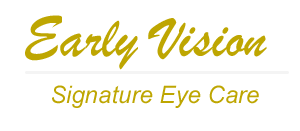Like routine maintenance on your car and home, scheduling regular visits with your eye doctor for a comprehensive eye exam—to test your current vision as well as screen for vision problems that might not be readily apparent—helps keep your most valued assets in peak condition. Regular eye exams are important to maintaining good eye health by keeping your prescription up-to-date and also by detecting and preventing potential diseases before they can become problematic. Because many eye diseases and conditions can develop slowly and do not have any obvious symptoms, early detection can reduce the risk of further harm and give you the best treatment options.
Eye Exams
-
You may be given these common tests during a routine eye exam. Find out what you can expect.
-
A routine exam won’t provide some of the measurements and testing that are required to determine if your eyes are suitable for contact lens wear, and to generate your contact lens Rx.
-
Catching problems in their early stages can prevent vision loss. An eye exam can do this by catching things you haven’t yet noticed.
-
Make the most of your exams by knowing how often to get them, and what information to bring with you.
-
Going to the eye doctor? Here’s what to expect, and what to remember.
-
Eye exams often begin by sharing information at the front desk, so be prepared.
-
Developing a routine of regular visits to the eye doctor—for you, and your loved ones—is part of protecting and maintaining your healthy sight.
-
You may want to ask some of these questions before or during your next eye exam.
-
Learn what common tests and procedures to expect during a routine eye exam.
-
It's important to understand the relationship between your eyes and any medications you may currently be using.


To view our up-to-date hours, click here.